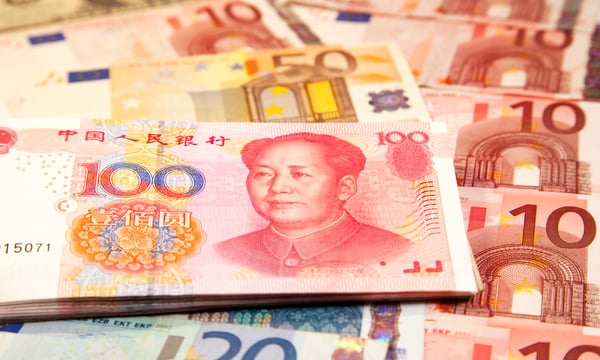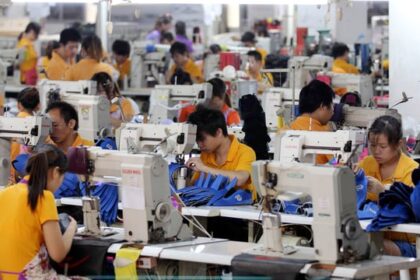A nondescript guesthouse on the west side of Beijing, the Jingxi Hotel, serves as a secure venue for high-level meetings and events of the Chinese Communist Party. The guesthouse, owned and operated under the aegis of the Chinese military, provides a comprehensive environment for delegates and attendees alike, allowing them both freedom of movement as well as the privacy that they would not necessarily have in other major hotels in Beijing. One reason may be that foreigners are allowed into Jingxi only under very limited circumstances.
Thus the Fourth Plenum of the 20th Central Committee of the Chinese Communist Party finished its highly scripted gathering at the Jingxi Hotel, producing a communique on October 23. Its recommendations will, in turn, act as the foundational guidance for China’s 15th Five-Year plan, due to be released in March 2026.
Overall, the Fourth Plenum communique, followed this week by top leader Xi Jinping’s “Explanation of the Recommendations,” provides a blueprint for China’s path forward for the five years beginning in 2026. It is a pivotal picture not just for China, but also for the international community, giving signals that can impact economic and political choices around the world.
The wording of the communique is at different points revealing, dire, and, at times self-congratulatory (the latter being common to most political parties anywhere).
What was left out of the communique is as intriguing as what was put in, and emphasized.
There are 41 reference to “the Party” made throughout the communique, almost twice as many as references to “people,” which comes in at 22 mentions. “Quality” is referenced 19 times, but “democracy” receives only two mentions, both in conjunction with “socialist.” “Market” has eight mentions, most attached to “socialist.”
“Private” has zero mentions, and by extension, “private sector” does not appear at all. (I suggested in this space last month that the private sector would be sidelined in this plenum.)
Indeed, the overwhelming focus of this meeting and its resulting communique is the Chinese Communist Party itself. “It was stressed that to run the country well, we must first run the Party well; only a Party that is thriving can make our country strong,” the communique’s authors asserted.
So much for the contribution to the country’s strength made in fact by the Chinese people. It comes as no surprise, then, that no reference is made at all to the “rights” of the people.
No mention is made of the CCP’s relationship with foreign investment, foreign enterprises, foreign nations, or foreign persons. An uninformed reader presented with this document could be forgiven for thinking that China hasn’t had any dealings at all with the outside world in the development of the Chinese economy over the last four decades.
Yet, in other contexts China’s government likes to tout the scale of foreign investment. Back in February 2025, an official from the Ministry of Commerce laid out statistics to that effect:
As of the end of 2023, the number of existing foreign-funded enterprises in China was 465,000, an increase of 46,000 compared to 2019, before the pandemic, and in 2024, 59,000 foreign-funded enterprises were newly established in China, marking a year-on-year increase of 9.9 percent.
Compare this year’s communique with that from the Fourth Plenum of the previous CCP Central Committee, held five years ago in 2019.
“People” were referred to 51 times. “Party” was used 50 times. In terms of China’s economy, China Global Television Network (CGTN), a Chinese government mouthpiece, reported that the 2019 communique not only acknowledged the existence of the private sector, but also amplified its importance.
“…We must unswervingly consolidate and develop the public economy, and unwaveringly encourage, support and guide the development of the non-public sector, and stimulate its dynamism and creativity,” CGTN cited the October 2019 communique as saying.
Five years later, that perspective of the “non-public” – i.e. the private – sector is gone from this year’s plenum communique. The existence of the private sector in China and the highly influential role that it plays in every aspect of life in China appears to have been literally written out of the document offering the main takeaways from the Fourth Plenum. that will underpin and inform the next 5-Year plan that will come out early next year. Even the 51-page “Recommendations” only mentioned the private sector four times, devoting just two short paragraphs to questions of the “private sector,” “private enterprises,” and “private investment.”
And yet, in direct contradiction to the Fourth Plenum’s apparent dismissal of China’s private sector as the leading economic force in the country’s growth and development, CGTN reported in February of this year that the private sector of the economy is responsible for over 60 percent of China’s Gross Domestic Product (GDP).
CGTN highlighted other Chinese private sector statistics, as well, all sourced from official Chinese government sources including China’s National Bureau of Statistics and the State Administration for Market Regulation. The numbers are astonishing: China receives 56.9 percent of its tax revenue from the private sector. Over 80 percent of urban employment is provided by private enterprises.
Every statistic adds weight to the conclusion that the state-run public sector of China’s economy lags behind its ideological nemesis, the private enterprise sector that operates under free-market, capitalistically guided, profit-driven principles and practices.
This is anathema to the traditionalists in the Communist Party, and especially to their leader, Xi, a devoted Marxist.
Leadership’s answer to this political dilemma is to ignore the economic sector that has saved the Chinese Communist Party’s standing in the country, and kept it afloat both economically and politically. The role of private enterprise does not receive even an honorable mention in one of the most fundamental documents that the CCP will produce through 2030.
Yet there is one statistic to which planners might really want to pay attention: the private sector is responsible for 80 percent of technological innovations.
Much of this year’s communique’s focus revolves around the need to build “new quality productive forces” that will allow China to lead in the technologies of the future. With 80 percent of innovation currently coming from the private sector, CCP leadership cannot rely upon state-owned public enterprises to deliver any significant level of the technological innovation upon which the country is planning.
In all, it’s fair to say that the communique shows that Chinese leadership has been rattled by recent global events, particularly those associated with trade and tariffs. “The period covered by the 15th Five-Year Plan will be critical in this process as we work to reinforce the foundations and push ahead on all fronts toward basically achieving socialist modernization by 2035,” the communique intoned. “It will thus serve as a key link between the past and the future. In this period, China’s development environment will face profound and intricate changes.”
Let’s hope that some of those changes ultimately include a return to celebrating and encouraging China’s private sector economy. One can also hope that China, faced with challenges, does not retreat to the isolationist posture that it adopted for so many centuries, and that served it so poorly in the long run.






